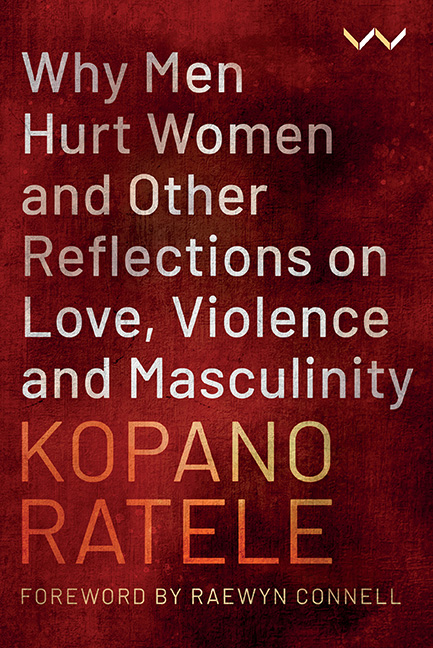35 - Mr President, end patriarchy?
Published online by Cambridge University Press: 24 November 2023
Summary
History may come to regard the fifth president of our democratic society, Cyril Ramaphosa, as one most distinguished by the constant attention he has paid to the issue of gender-based violence and femicide in South Africa. Politicians have contributed to the miserable conditions in their societies – and such unhappy conditions were evident in this country under Ramaphosa’s predecessor, Jacob Zuma – and I do not have great trust in the words they utter. It takes a whole machinery to implement the promises they make. Nonetheless, while other presidents have mentioned it now and then, President Ramaphosa appears to take every opportunity to bring attention to the scourge of violence in South Africa. In contrast to the second president, Thabo Mbeki, who was preoccupied with women’s empowerment, Mr Ramaphosa is particularly concerned with violence against women and girls. There are many instances we can point to that indicate this concern. For instance, at the beginning of 2021, while addressing the nation about the second wave of the Covid-19 pandemic, he referred to gender-based violence and femicide as the second pandemic. The National Strategic Plan on Gender-Based Violence and Femicide contains a foreword by him in which, among other things, he states:
The unacceptably high levels of gender-based violence and femicide in South Africa are a blight on our national conscience, and a betrayal of our constitutional order for which so many fought, and for which so many gave their lives. South Africa holds the shameful distinction of being one of the most unsafe places in the world to be a woman. We have amongst the highest rates of intimate partner violence, and recently released data from Statistics SA show that rape and sexual violence have become hyperendemic.
Every sentiment in that statement is one I share. It is pleasing that the president uses words and phrases like ‘the shameful distinction of being the most unsafe place in the world to be a woman’, ‘hyperendemic’, and, elsewhere, ‘queer or cis’ and ‘deep crisis’. I also believe that if we cannot now, under this presidency, move the needle toward a more non-violent society, we will be set back for decades.
- Type
- Chapter
- Information
- Publisher: Wits University PressPrint publication year: 2022



